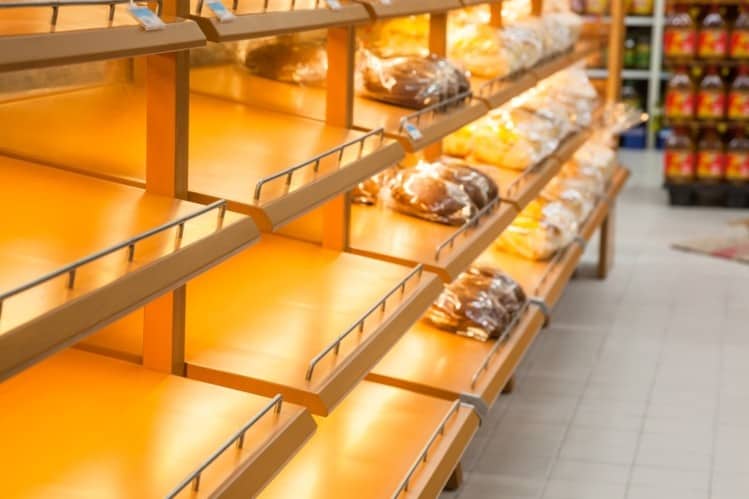On March 20, Russia banned the export of grain products, followed by Kazakhstan and Kyrgyzstan. These measures were reported as “strategic decisions” to safeguard local food supplies. While the decisions might seem straightforward, these measures could have a severe impact on the global food supply, according to Maximo Torero, a Peruvian economist who works as chief economist for the UN Food and Agriculture Organization (FAO).
Protectionist measures by countries like Russia, who provide the world with a large portion of its grain, could have unexpected negative consequences to the global food supply, according to Torero. On the FAO website, Torero outlined the steps required to prevent a global shortage of fresh fruit and vegetables.
What does Vietnam’s recent rice export ban mean for global #foodsecurity? Could this be the beginning of a #COVID19 food price spike?
With effective crisis diplomacy, it doesn’t have to be. https://t.co/DxQYD6oxxo
— Global Food and Ag (@GlobalAgDev) March 29, 2020
Supply chains are currently working as intended, but the shipping industry faces a slowdown as lockdowns become more common and demand for products falls. That is not a cause for nations to start hoarding their own resources: Trade barriers can only damage global supply lines, according to Torero.
One of every five calories people consume has crossed at least one international border, according to the FAO. Low- and middle-income countries make up a significant portion of global food importers, making them especially vulnerable to disrupted supply chains.
Bloomberg agriculture editor Millie Munshi described the current local supply situation: “The reason you’re seeing the empty shelves is because of how much frenzied buying there has been.” She continued, “with that huge spike in demand, retailers, suppliers, the whole supply chain really has had a hard time refilling and restocking. So that’s really what’s causing the empty shelves right now.
Sit tight my precious. We are headed home. #toiletpaper #coronavirus pic.twitter.com/iEJfLdx2lG
— ????? ?? ????????? ? (@BHinFlorida) March 28, 2020
Following the 2008 financial crash, many nations increased export taxes or implemented outright export bans, which could prove disastrous in our currently fragile global trade system. Ironically, it is farmers in poor countries that run the greatest risk of food insecurity if barriers are erected.
My shopping experience this afternoon… I not proud of my fellow Brits. #emptyshelves #panickbuyinguk pic.twitter.com/OqDJWpCZGK
— Peg Morris (@pegmorrisart) March 19, 2020
The Solution
Torero and the FAO argue for the opposite response to barriers and hoarding. They argue that countries should review their trade policies and actively reduce trade barriers to allow the world’s produce to flow unimpeded. While scenes of empty shelves looted of every sheet of toilet paper are commonplace across Europe and North America, it is perishable goods that should be our primary concern. Fruits and vegetables require quick and efficient supply to demand, and slowdowns in international trade endanger that speed.
March 19, 2:00-4:00pm ‘Before going into partial lockdown’, #emptytubestation, #oxfordstreet, #London, #Emptyshelves in a #northLondon #supermarket, pic.twitter.com/9GC0gRjjKl
— Federica Tedeschi (@FedericaLondon) March 22, 2020
Fish and fresh produce are left on supermarket shelves as people stock up on canned goods, but it is exactly these products that should be purchased, used, and replenished. Aside from the health benefits of fresh food over preserved variations, keeping the market for these products alive and well will only support their availability in the future.
Governments can still support their national food producers, not through barriers to export, but by purchasing produce directly from farmers. This would result in farmers receiving a consistent income for their labor, less food waste, and creates a “strategic reserve” of available fresh fruit and vegetables for citizens under lockdown.
Around the world, farmers require workers to help harvest, package, and ship their produce. Locust plagues and droughts have already created significant hardships specifically for African farmers, and global cooperation is the only way to avoid catastrophe, according to Torero.
As more people have their movement restricted it is increasingly important to keep up the movement of food. By eating fresh produce and fish, consumers can avoid depleting limited supermarket stocks, eat healthier, and contribute to sustaining global food supplies.
For governments, the recipe for success is the same approach prescribed in most other COVID-19 issues: Cooperation between nations is the key to stopping the virus and limiting its consequences.

